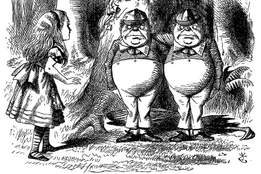owed; owing
1
a(1)
: to be under obligation to pay or repay in return for something received : be indebted in the sum of
owes me $5
(2)
: to be under obligation to render (something, such as duty or service)
I owe you a favor.
A lawyer owes her client legal advice.
b
: to be indebted to
owes the grocer for supplies
2
: to be indebted for
owed his wealth to his father
owes much to good luck
1
: to be in debt
owes for his house
2
: to be attributable
an idea that owes to Greek philosophy
Love words? Need even more definitions?
Merriam-Webster unabridged











Share